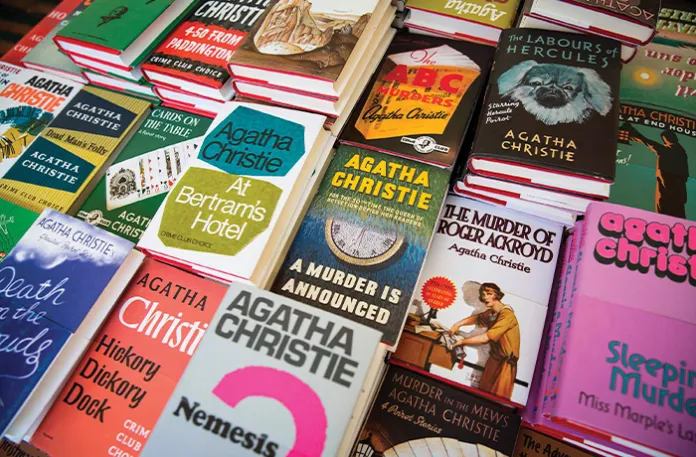Steele dossier author: ‘A lot of disinformation is true’ but lacks context – Washington Examiner
Christopher Steele, the author of the infamous “Steele dossier” concerning Donald Trump and Russia, has recently addressed the topic of disinformation in an op-ed to promote his new book and restore his credibility. In the piece, published in *Newsweek*, Steele argues that much of what is labeled as disinformation can actually contain truths that are presented without essential context or misemphasized. He criticizes journalists for often succumbing to temptations to publish questionable information and expresses concern that many do not possess the expertise to navigate complex issues surrounding disinformation effectively.
Steele’s comments come in light of the controversies surrounding the Steele dossier, which made explosive allegations about Trump colluding with Russia during the 2016 election. While these claims spurred substantial media attention, they were ultimately disproven through various investigations. Despite the dossier’s initial impact, its credibility diminished over time, particularly after it was revealed that Hillary Clinton’s campaign funded Steele’s research. The intelligence community confirmed Russian interference in the election, but special counsel Robert Mueller was unable to find evidence of criminal charges against Trump or his associates based on the dossier’s claims. Steele contends that his work included important contextual insights that were overlooked, which he had shared with the FBI during its investigation.
Steele dossier author: ‘A lot of disinformation is true’ but lacks context
Christopher Steele, who wrote the famed and since-discredited dossier about former President Donald Trump and Russia during the 2016 election, discussed his views about disinformation on Tuesday in an op-ed as part of a broader media campaign to promote his new book and salvage his credibility.
Steele, a former British intelligence officer, wrote in Newsweek that disinformation can be true information that is missing key context, and he criticized the “average journalist” as unscrupulous.
“When people talk about disinformation, it’s a bit of a misnomer,” Steele wrote. “A lot of disinformation is true and factual, but it’s slanted, or it leaves things out, or emphasizes some things at the expense of others.”
Steele also said reporters often face “temptations” to publish material that has “dubious origins.”
“My fear — and I don’t wish to sound condescending about it — is that your average journalist, even your average investigative journalist, really doesn’t have the depth of knowledge and skill to deal with these things properly,” Steele wrote.
Steele’s remarks come after BuzzFeed News published his string of memos about Trump, which became known as the “Steele dossier,” in January 2017, thrusting into the spotlight explosive allegations that Trump colluded with Russia to boost his 2016 election prospects. Those allegations were ultimately disproven.
The salacious and anonymously sourced claims in the dossier attracted attention for years while Trump was in office. They included the unsubstantiated accusations that Trump was doing business with Russia as part of a scheme to help his campaign and that he was involved with Russian prostitutes.
In the months and years after the document was published, the Steele dossier’s credibility unraveled.
Revelations surfaced that Trump’s opponent, Democratic candidate Hillary Clinton, paid Steele to perform research about Trump and compile the document.
Many of the dossier’s claims, vetted by special counsel and FBI investigations, were either proven untrue or were never corroborated. The intelligence community found that Russia engaged in election interference, and special counsel Robert Mueller found that some Trump campaign officials communicated with Russian officials, but Mueller never found evidence to support bringing charges against Trump or anyone working for his campaign.
Steele said in his op-ed that there was more to the dossier than what the public could garner from the “raw document” and that he handed over added context and sourcing information to the FBI while working on it.
“We briefed more to them than is contained in the document alone, which ends up somewhat mischaracterized by people without access to all of the appropriate information and context,” Steele wrote.
Steele’s op-ed was published the same day the former intelligence agent published a book, called Unredacted: Russia, Trump and the Fight for Democracy. It appeared in conjunction with other outlets publishing previews of Steele’s book and interviews with him as he promotes his work.
The Washington Post published an interview with Steele on Monday in which he teased that he had more damning information about Trump.
“Will anyone buy it?” the Washington Post asked in its headline.
Trump campaign spokesman Steven Cheung told the outlet the answer to that question was no.
“Any new information by this foreign agent who peddled the debunked Steele dossier should be wholly dismissed, and any media outlet that entertains anything he has to say is just the continuation of election interference intended to meddle in the campaign,” Cheung said.
" Conservative News Daily does not always share or support the views and opinions expressed here; they are just those of the writer."




